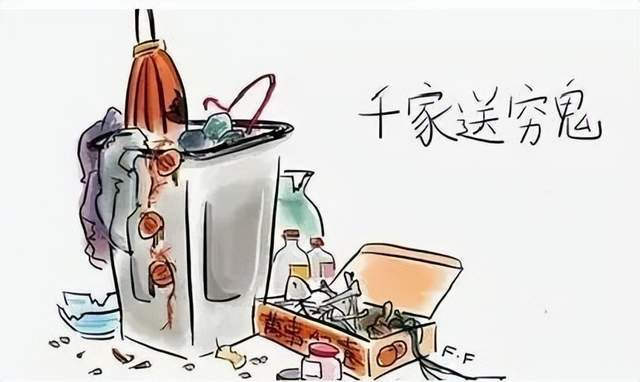过年英语丨大年初六“送穷鬼”,“穷鬼”是什么?
快乐的时光总是那么短暂
今天是大年初六
春节假期的最后一天
在这弥足珍贵的日子里
有一件十分重要的事情等着我们去做
那就是
送穷鬼!

大年初六 千家送穷鬼
Today is the 6th day of the 1st month in Lunar Calendar.
今天是农历正月初六。
According to traditional customs, families usually send away the Ghost of Poverty (穷鬼, qiong gui) on this day.
根据传统习俗,家里通常要在这一天送走穷鬼。
By doing this, Chinese people wish to send away poverty and welcome the beautiful days and good luck in the new year.
通过做这些,中国人希望能送走贫穷并且在新的一年迎来幸福和好运。

According to the legend, the ghost of poverty is a son of an emperor thousands years ago. He was short and weak, and liked wearing ragged clothes and eating poor porridge.
根据传说,几千年前穷鬼是一个皇帝的儿子。他矮小而又瘦弱,并且喜欢穿破烂的衣服,喝稀饭。
Even when people presented him with new clothes, he would not wear it until he ripped it apart. So, he got the name of ‘the man of poverty (穷子, qiong zi) with time passing by, he gradually became the ghost of poverty.
即使人们送给他新衣服,他也要扯破后才穿。因此,随着时间推移,他被称为了穷子,渐渐地就变成了穷鬼。

To send away the Ghost of Poverty, Chinese people will usually throw away their ragged clothes, rubbish and other dirty things.
为了送走穷鬼,人们通常会将自己的破衣服、垃圾和其他脏东西扔掉。
This practice also has its hygienic reason.
这一做法也是为了清洁。

As for the first five days of Chinese new year, people are not allowed to throw away any rubbish because the rubbish is regarded as fortune which cannot be swept off.
就新年的前五天来说,人们不允许扔掉任何垃圾因为垃圾被视为财富不能被清扫掉。
However, after the Festival of Po Wu (破五, po wu), many taboos can be broken.
然而在破五之后,许多禁忌就可被打破。
Thus, people finally can clean up their houses again.
于是,人们最后会再打扫一遍他们的房子。

关于“穷”的不同表达方式
poor
贫穷的,拮据的
dirt poor= extremely poor
极度贫穷的,极贫困的
badly off
穷困的,拮据的
比较级:worse off / worst off
反义:well off(比较级:better off)
make both ends meet
勉强维持生计
poverty
n.贫穷,贫困
poverty-stricken
一贫如洗的
poverty line
贫困线
be flat broke
非常穷
flat=dead=so=very
很/非常
broke [broʊk] adj. 没钱; 囊中羞涩; 破产
今日的春节特别课堂就到这里啦
小朋友们都学会了吗?
喜欢的话
记得分享给别的小朋友哦
